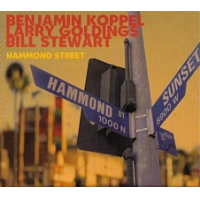Home » Jazz Articles » Album Review » Ismael Lo: Senegal
Ismael Lo: Senegal
Sénégal, the first album of new material by Ismaël Lo in over five years, is at least in part one for the naysayers. Lo incorporates vaguely North African elements on "Incha Allah and vaguely South African elements on "Tass Yakar —appealing gestures, with high production values to boot, but more of a murky international pop stew than the aforementioned records by his compatriots N'Dour and Seck.
Elsewhere—on "Le Jola, which mourns the victims of the horrific 2002 Dakar-Casamance ferry accident that claimed more lives than the sinking of the Titanic, and on "Plus je fais ci, plus je fais ça —Lo introduces a vague reggae shtick, but without conviction. Compare this to the genuine use of reggae elements by the London-based Afro-beat band Soothsayers on their excellent Tangled Roots (Red Earth, 2006) to get a sense of how powerful this mix might be.
I allude to the examples of N'Dour, Seck and Soothsayers here precisely to illustrate that cross-pollination can yield excellent results. It's nevertheless the case that the best numbers on this record are a handful of mid-tempo mbalax tunes ("Manko, "Jiguen )—that is, the songs that stick closest to the Senegalese elements that Lo presumably knows best.
Lo was tagged as the "African Bob Dylan early on, because he played the acoustic guitar and the harmonica, and because of the social content of his lyrics. Sénégal marks a further step away from that musical identity, although he does play a little guitar and harmonica on this record. "Ma fille, a sentimental father's lament upon his daughter's marriage, borrows the acoustic guitar riff from Oasis's 90s hit "Wonderwall, and it's affecting. When Lo sings "mbindane du jaam — your servant is not a slave—on "Mbindane, the folky setting carries a sense of political conviction.
Perhaps the surest sign of what this record means for Lo's musical development is his remake of his long-ago smash hit, "Tajabone, a reminiscence about a children's game, apparently. The new version has the same guitar and harmonica arrangement as the original, but Lo's voice is a little fuller. He's also now accompanied by an autumnal string section that brings the whole affair rather close to the Rolling Stones's "As Tears Go By. Which is to say, a little maudlin.
Lo's insistence on singing in Wolof on all but two tracks—not even providing French or English translations in the liner notes—vigorously counters the sappy universalism of the musical treatments and is to be applauded.
Track Listing
Baykat; Incha Allah; Tass yakar; Le Jola; Taar dousey; Manko; Yaye boye; Plus je fais ci, plus je fais
Personnel
Isma
Album information
Title: Senegal | Year Released: 2007 | Record Label: Universal Music France
Tags
PREVIOUS / NEXT
Support All About Jazz
 All About Jazz has been a pillar of jazz since 1995, championing it as an art form and, more importantly, supporting the musicians who make it. Our enduring commitment has made "AAJ" one of the most culturally important websites of its kind, read by hundreds of thousands of fans, musicians and industry figures every month.
All About Jazz has been a pillar of jazz since 1995, championing it as an art form and, more importantly, supporting the musicians who make it. Our enduring commitment has made "AAJ" one of the most culturally important websites of its kind, read by hundreds of thousands of fans, musicians and industry figures every month.






















